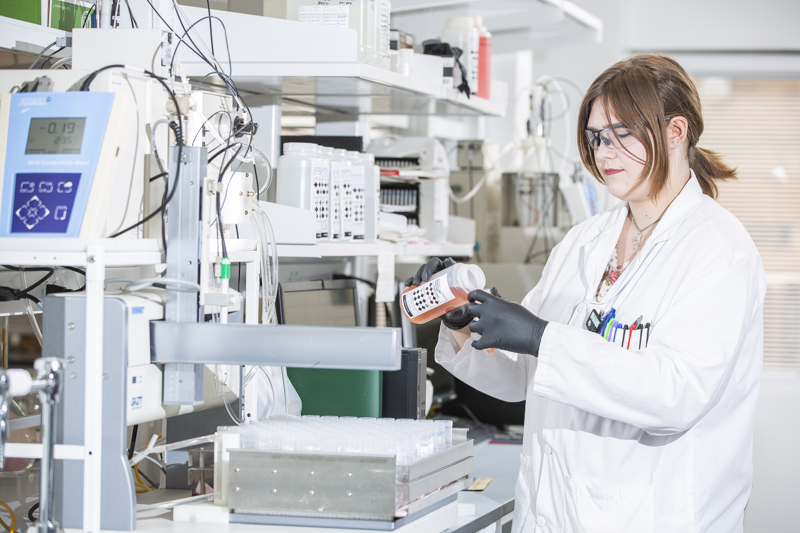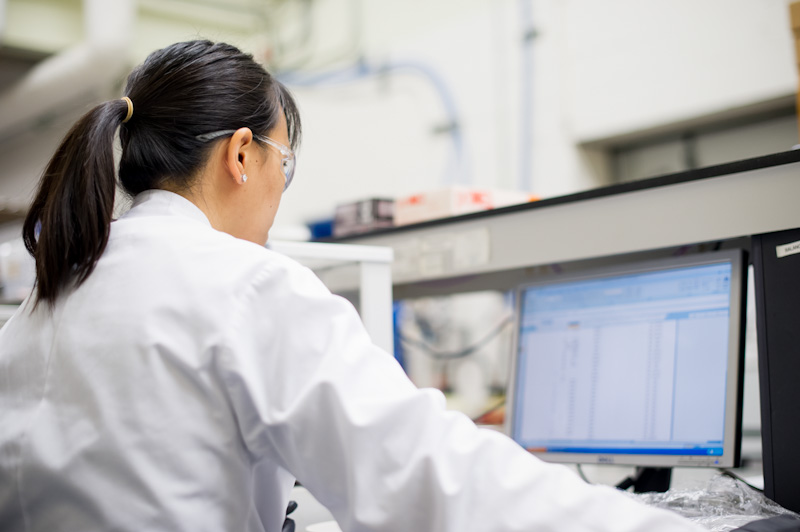
There is a misconception, perpetuated by science fiction movies and crime or medical television shows, that analytical testing happens in a magic black box: a sample is taken from a mysterious material and put inside a black box and the box reveals everything you want to know about the sample.
In reality, analytical testing is a hugely complex process involving multiple types of complex scientific instruments that require a significant technical understanding to operate. A water sample doesn’t simply get put in a magic black box. In my over 30 years working in and managing SRC Environmental Analytical Laboratories and as an assessor for the Canadian Association for Laboratory Accreditation (CALA), I have seen how these complexities give rise to uncertainty in water test results.
Uncertainty can arise from many factors, including how a water sample was collected, the water source, the type of water (e.g., ground, surface, drinking or wastewater), how the sample was subsampled and prepared in the laboratory and the type of chemistry or other scientific principle employed by the instrumentation.
Science provides a level of trust in the face of uncertainty. This is the nature of the scientific method. Evidence-based observations and the repeatability of those observations provide people with an understanding that they can rely on what “the science” tells them.
To protect this, rigorous systems exist to ensure “the science” is reported ethically and without bias. And this is particularly important for municipalities that manage water treatment systems where public health is on the line. Confidence in the system is required to build public trust.
Setting the Standard
Laboratories that do water testing are assessed against the International Standards Organization’s ISO/IEC 17025 standard. It is consistent with the ISO 9001 standard for quality management systems. Laboratories accredited to the 17025 standard operate in accordance with the principles of ISO 9001.
However, the 17025 standard has a number of requirements specifically directed to laboratories, which the ISO 9001 standard simply doesn’t cover. The technical complexities involved in laboratory analysis require a rigorous assessment of a laboratory’s processes to ensure it has the technical competence and appropriate management systems to consistently deliver technically valid test results.
Learn more about the accreditation process.
What Accreditation Means for Water Quality Testing
People familiar with water treatment in Canada will be aware of the Walkerton crisis. This crisis happened at a time when the Canadian Association for Environmental Analytical Laboratories (now the Canadian Association for Laboratory Accreditation) was gaining prominence amongst environmental laboratories and when laboratory accreditation was increasingly being recognized as necessary. One of the positive outcomes of this crisis was an increased recognition among Canadian regulators of the need for laboratory accreditation to reduce the public safety risk of invalid drinking water test results.
Most provinces have subsequently written regulations that now require laboratories to be accredited to ISO/IEC 17025 to provide results for drinking water tests, environmental tests and many other test results that can impact public safety. This helps ensure laboratories reporting results that can impact the safety of the public are competently delivering accurate results and are not unduly influenced by external pressures.
For water quality testing, most users of laboratory data understand that laboratories should be accredited. Although what exactly accreditation means and how it benefits them is less understood.
One of the requirements of accreditation is that laboratories must cooperate with their clients and strive to continually improve their services.
In short, users of laboratory data should expect to be able to reach out to the testing laboratory with any questions regarding their water test results and samples or other concerns.

If you don’t quite understand your test report or what it means exactly, your accredited laboratory should be able to help you understand it. In addition, the laboratory should actively encourage feedback on their service level to clients.
Laboratories are not infallible. Water testing is an incredibly complex process. Technologists operate complex instrumentation and it’s not always easy and straightforward to recognize malfunctions that can cause erroneous results.
Quality assurance checks and balances ensure things are working appropriately, which helps give laboratory management confidence that everything is fine, but things can and do go wrong. Users of laboratory data should not be afraid to ask for a recheck or for more information from their accredited lab when results seem incorrect or unusual.
Proficiency Testing
Conformance to the ISO standard ensures that the laboratory is participating in Proficiency Testing (PT) studies on an on-going basis.
Studies like this help the laboratory ensure the routine processes it uses can deal with all samples, including the difficult ones. The Canadian Association for Laboratory Accreditation has published data that demonstrates participation in Proficiency Testing leads to improved laboratory performance. They suggest that, “The combination of proficiency testing and conformance to ISO/IEC 17025 through accreditation is the best strategy to ensure consistently high-quality analytical results.” Users of water testing data should expect nothing less than high-quality results.
Water test results are usually compared against regulations and for regulators, use of accredited laboratories increases public confidence in the reliability of the data used to support decisions. When decisions are made based on data from multiple laboratories, there is also the increased confidence in comparing the data when all the laboratories are assessed and accredited against the same standard.
Regulators can also have confidence that a laboratory’s competence is assessed by skilled and capable expert assessors.
Scope of Accreditation
An accredited laboratory will have a scope of accreditation that lists every specific process the Accreditation Body has assessed for that laboratory. Accredited laboratories have their accredited processes re-assessed on an on-going basis to maintain their accreditation and ensure nothing is missed.
The scope of a laboratory’s accreditation is typically published by the Accreditation Body and can also be obtained from the laboratory. If you are doing something new or unusual, it is worth checking to see the accreditation status of that parameter.
Confidence in Water Testing Results
There are many benefits to using accredited laboratories for water testing, such as the assurance that results are of the highest quality and cooperation from the lab with any issues you might have. Users can expect that labs are continually improving their processes and identifying any risks that might impact their results. And last but not least, users of laboratory data can have the confidence that regulators will accept their water testing results.
SRC Environmental Analytical Laboratories performs a wide range of water quality testing for both ground water and surface water to determine if they meet objectives for drinking water, household, livestock or agricultural use.
